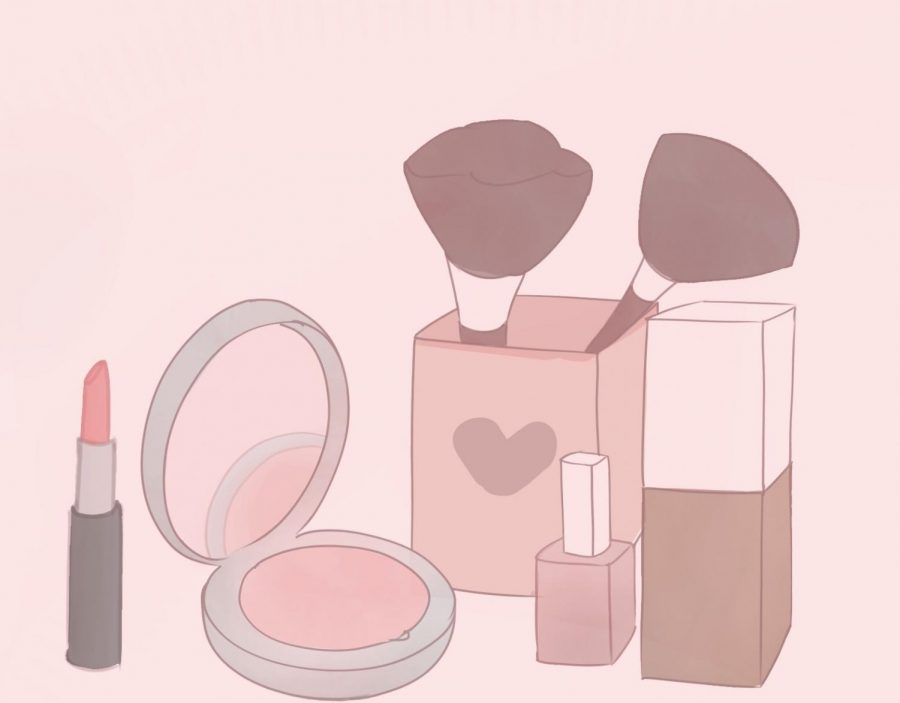The Need for Diversity in Makeup
October 12, 2018
When starting a makeup line that features face products (e.g. foundation, concealer), it’s vital for brands to cater to people of all skin colors. Yet, cosmetics brands still release products that are mainly exclusive to people of lighter skin tones which denies dark-skinned people from finding shades that actually match their skin. Culture Editor Clover Hope in her Jezebel article “The Makeup Industry’s Frustrating Cycle of Struggle and Progress for Women of Color” agrees that the makeup industry is “where makeup is predominantly defaulted white.”
Of course, the present makeup industry has drastically changed from what it was in the 1900’s. Back then, several makeup brands mostly advertised brightening creams to women of color. These sneakily racist creams were advertised to help you achieve “love, romance, and popularity with a pretty, brighter-looking skin.” Makeup solely for women of color did not exist until the 1970s when a black woman named Madam Walker created Madam C. J. Walker Manufacturing Company, a company that specifically sold beauty and hair products for black women. Not only did it give her a vast fortune, but it titled her the first ever self-made female millionaire in America.
In this day and age, people of color don’t have to struggle as much as women did in the 1900’s to find a beauty product made specifically for them. In September of 2017, Fenty Beauty, a popular makeup line created by the singer Rihanna, launched a boundary-breaking line of 40 foundation shades. This wide range earned praise from makeup lovers from all around the world and was positively reviewed by many beauty gurus. (I myself have a Fenty Beauty foundation, and the shade matches me so well!) Rihanna told Time, “It was also important that every woman felt included in this brand. We are all so different, with our own unique skin tones, so we started with the 40 foundation shades out the gate.”
So imagine how shocked the media was when famed beauty brands such as Tarte or It Cosmetics released foundation shades that barely included the skin tones of people of color. Tarte, a brand that is well known for its release of the Shape Tape Concealer, revealed that it would finally launch its very first Shape Tape Foundation. Beauty fanatics were ecstatic to learn about the release, for Tarte’s concealer was famous for its rich formula. But when a picture of the shade range was released, several fans were utterly disappointed by how limited the shades were. Tarte released swatches of all 15 shades, but according to Twitter users, only two of the shades were dark-skinned options. The exclusivity of the shade range received an extreme amount of backlash from the makeup community on social media. Jeffree Star, a beauty YouTuber known for giving honest reviews, gave his own insight regarding Tarte on his channel. “If you cannot create an all-inclusive shade range, why is the product even being put out?” he passionately asked. Tarte delivered an apology responding to the backlash stating: “We all just got so caught up in #shapetapenation and seeing your tweets asking for it…We wanted to get the product out as fast as possible, and we made the decision to move forward before all the shades were ready to go.” Jeffree Star called the apology “too late” and further asked the question: “Are women of color an afterthought to Tarte?”
Another example of a brand’s flopped shade range is It Cosmetics with its staggering number of only seven shades. The majority of the makeup community agrees that releasing a narrow shade range is unacceptable ever since Fenty Beauty set the bar. The frustrating process of finding a foundation for dark-skinned people has definitely improved over the decades, yet makeup brands these days still manage to screw up. Diversity is so, so important because makeup is enjoyed and used by a wide spectrum of skin tones. Everybody has the right to have a product that is made for them, and nobody deserves to be isolated for the color of their skin.

